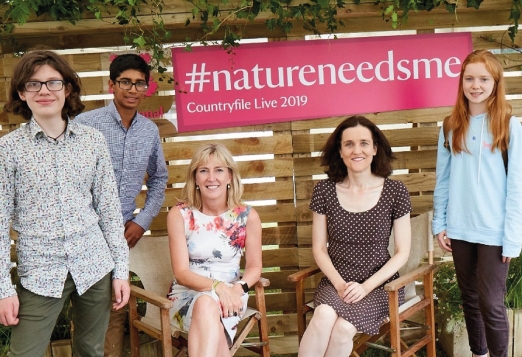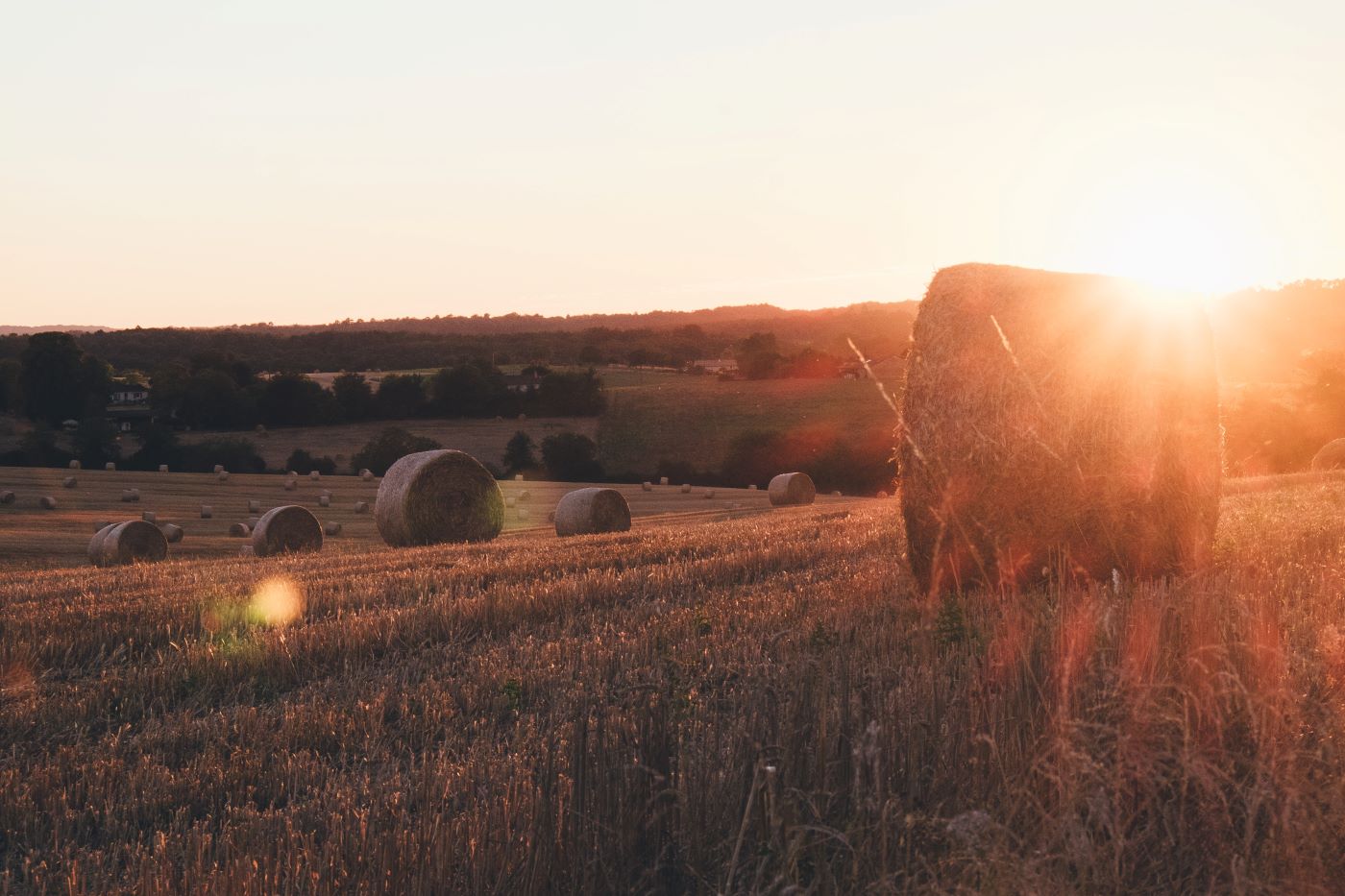One of the most valuable things about being on the graduate programme at CPRE is the opportunity to be present at some big occasions, and hear what key decision makers have to say for themselves. One of my favourite events this year was August’s BBC Countryfile Live at Blenheim Palace in Oxfordshire, when the National Trust invited me to take part as one of several young ambassadors for the environment.
The young voices speaking up for our environment
 Young environmentalists with Hilary McGrady, Director-General of the National Trust and Theresa Villiers, Secretary of State at Countryfile Live.
Photo: National Trust / Arnhel de Sera
Young environmentalists with Hilary McGrady, Director-General of the National Trust and Theresa Villiers, Secretary of State at Countryfile Live.
Photo: National Trust / Arnhel de Sera
Young representatives had come together with directors and CEOs from many other organisations to discuss how the latter, as the ‘grown-ups in the room’, should put young voices at the fore of the movement. Other invitees included representatives from the Wildlife Trusts, RSPB, Wildfowl and Wetlands Trust, Young Farmers’ Clubs, and the National Farmers’ Union. Passionate young activists also had a well-deserved place, including Bella Lack, Dara McAnulty and Arjun Dutta (pictured above).
We’d done our research, scribbled down our questions, and rehearsed our arguments. When lunchtime came around, we were keen to take our seats at the table. Present in the place of the absent environment secretary was Andrea Ledward, the Natural Environment Director at Defra. We launched into a discussion on the biggest issues facing our environment, with the young people in the room often making the most ambitious suggestions.
Access to nature
Conversation first focused on the importance of people connecting with nature. Youth representatives highlighted that they were only sitting around the table because they’d been lucky enough to have had the opportunity to foster a love of the living world since childhood. How can we expect anyone to fight for nature if they don’t know it? I highlighted that enabling access to the countryside for schoolchildren and other groups excluded from nature would cut right across Government departments, requiring commitments not just from the environment secretary, but transport, education, and tourism departments.
The role of government and economy
With the input of Lord Nicholas Stern, very much a grown-up as chair of the Grantham Research Institute on Climate Change and the Environment at the LSE, conversation moved towards the economic impacts of climate change. Without significant investment in mitigation and adaption, he warned, profits will fall and the economy will be damaged. Andrea Ledward agreed, urging us to focus on the economic case for tackling the climate and ecological crisis.
While many of the adults nodded solemnly, there were murmurings of discontent among the younger delegates. The focus on the economy didn’t feel empowering: what would we do if it no longer made ‘business sense’ to stave off ecological collapse?
The role of NGOs
Young representatives then challenged the leaders in the room. Our charities have been doing some excellent work, but the natural world is still in decline, and young people’s futures are in the balance. Often, the loudest voices in campaigning and decision-making are older people in positions of power and privilege. We urged environmental charities to go beyond their business as usual approaches to campaigning, and instead create platforms to amplify young peoples’ voices. This could be through youth representation on trustee boards, or running training schemes for young people. Although CPRE still has a way to go, it gave me an added appreciation for the opportunities our graduate scheme provides. Bella Lack responded to questions from adults – such as ‘how can we support you?’ – by urging everyone to join the global climate strike on 20 September.
Theresa Villiers’ speech
The next event was the new secretary of state’s keenly anticipated debut speech. Theresa Villiers began by emphasising the life-enhancing benefits of being in the countryside. She paid homage to landscapes around the country, recounting how lucky she felt to have access to them. This served to highlight the importance of access to nature for everyone, and I hope that the secretary of state will take that forward in her work at Defra. Sadly, she didn’t take questions, so I pose mine here:
‘You accept that climate change threatens people and nature around the world. Given scientific consensus that we cannot afford any more fossil fuel infrastructure, do you still stand by your decision to vote for fracking?’
‘You agree that investing in the climate and environment is not a choice but an imperative; how will you persuade the rest of the Government to prioritise spending towards a vibrant and thriving countryside?’
‘Can we trust you to deliver on the pledges tantalisingly dangled by your predecessor Michael Gove, such as an all-in deposit return system, an agriculture bill that delivers public goods, and a world-leading environment bill?’
I, along with every generation set to inherit this planet, hope that we can. Next month, many of us at CPRE will be supporting the global strike in September. A response from the ‘grown-ups’ is needed more urgently than ever.
More blogs
-
Farming for the community2019-10-10A free pass for buses?2019-09-06Johnson's countryside challenge2019-07-26The Time Is Now - what happened?2019-07-12There can be no ‘business as normal’2019-05-20The power of the next generation2019-03-08Let’s celebrate the power of trees2018-11-23Letwin Review: An opportunity to tackle the housing crisis without sacrificing the countryside2018-10-24Watching the party games2014-10-10



